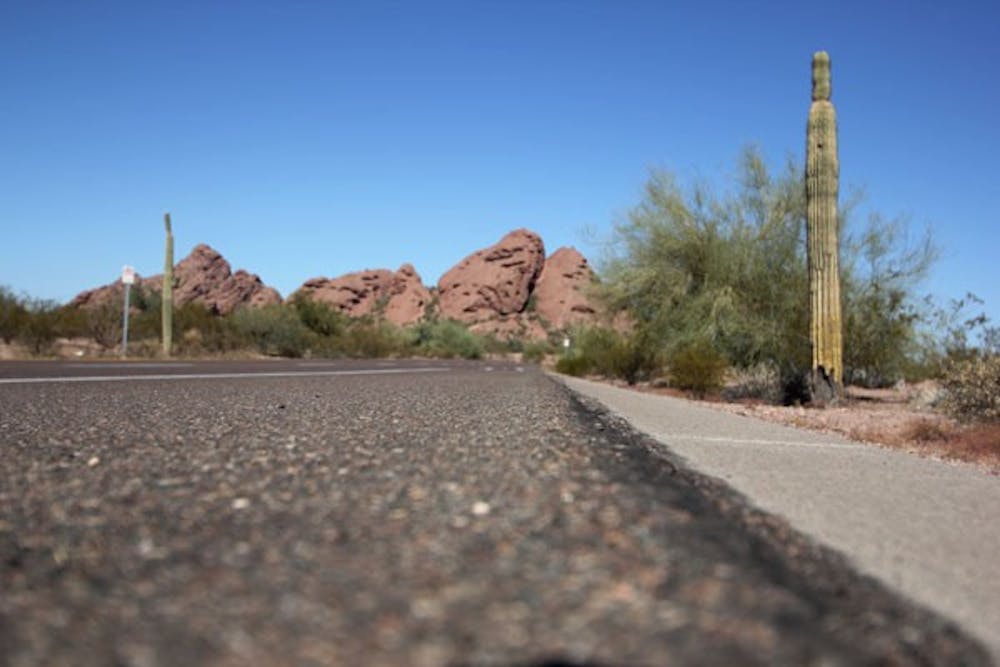 The urban heat island effect could increase summer and night temperatures between 2 and 7 degrees, according to researchers. (Photo by Jenn Allen)
The urban heat island effect could increase summer and night temperatures between 2 and 7 degrees, according to researchers. (Photo by Jenn Allen)After a summer of both record-breaking heat and rain, students returning to ASU after vacation or arriving for the first time had to prepare for both weather extremes during the first few days of school.
According to Rita Wermers, a nurse at ASU Health Services, health care workers on campus see a variety of ailments related to heat and students failing to take proper precautions to prepare for a sudden change in weather.
In an email interview, Wermers said professionals on campus often treat students for dehydration and sunburn, which may seem like obvious problems arising from the heat. However, she also said many students are treated for urinary tract infections, which are common in people suffering from dehydration.
It is especially dangerous when humidity is low, Wermers said, because people do not notice that they are sweating and do not think to drink extra water until they are already dehydrated.
Wermers cautioned students that if they cannot avoid being outside during peak hours for heat, they should take breaks frequently.
“This is particularly true for people who are new to Arizona,” Wermers said.
It is also important that students learn to recognize the symptoms of a heat-related illness so they can understand what is happening to their bodies and act accordingly before it becomes an emergency situation.
“Here on the ASU campus, awareness also means being able to spot a friend, classmate, or roommate when there are early signs of trouble as well as encouraging your friends to be healthy and safe,” Wermers said.
According to Maricopa County Public Health, 11 people total have died from heat-related causes during 2014 so far. By the end of August last year, 32 people had died from heat-related causes. Every person who has died so far has been age 50 or older, but that does not mean that college-age people are not at a high risk for injury.
Students are cautioned to listen to their bodies when it comes to hydration. Wermers said it is never too early to begin hydrating and advises students to carry water bottles with them to their classes to avoid becoming dehydrated.
Students also need to be more aware of what fluids they are putting into their bodies when temperatures are especially hot, Wermers said. Alcohol and sugary drinks will actually dehydrate a person even more and can trick a person into thinking that they are hydrating.
Wermers said sports drinks are good for replacing electrolytes after working out, but said workouts are safest early in the morning before the weather gets too hot.
The most important health tip in hot weather is listening to your body, Wermers said. She said heat-related illnesses are especially common for people who are unaccustomed to the climate, and said they need to take extra precautions.
Exploratory sophomore Nicole Nolan, who moved to Tempe from Illinois, said the extreme change in climate has been a difficult adjustment.
Psychology senior Surbhi Sharma, who has lived in the Phoenix area since childhood, said she tries to avoid being outside during peak temperatures of the day, sometimes delaying errands until the weather gets cooler. Sharma said she does not have a car or a bicycle, so she has to rely on walking for transportation, which leads to spending extra time in the sun.
Reach the reporter at cvanek@asu.edu or follow her on Twitter @CorinaVanek




